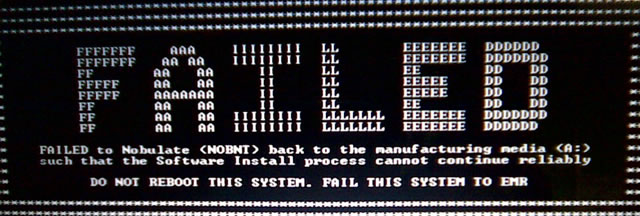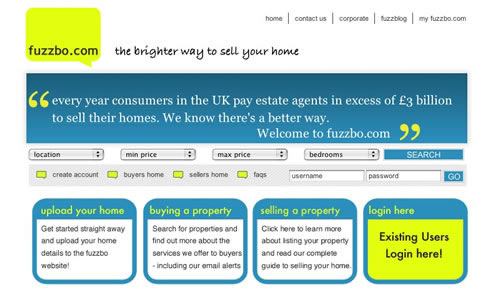Photo by jbhalper – http://flic.kr/p/6zr4TR
In which I reveal the closely guarded secrets as to why many, many web based businesses fail. Fine, I hate suspense too … so if you’re after the short version, it’s this: you haven’t put enough money aside to market your business properly. Slightly longer version follows …
I’ve been doing this for 9 years now and have built websites for all sorts of businesses. The most successful websites have been those attached to already successful businesses. The least successful have been those attached to no business at all.
I speak from experience here … about 6 years ago I, along with 2 friends, launched a website called Fuzzbo (you can read a little bit about it here). It was a website for property owners to list their own properties for sale (fuzzbo / For Sale By Owner … tenuous, I know) We launched a good little website for it, ran a property blog, and built a marketing plan.
The plan was simple, and old school: leafletting. Where better to find home owners than in their homes? How better to locate your target market than to look for ‘For Sale’ signs in the neighbourhood? It wasn’t a bad plan, but we didn’t have the resources to execute it consistently and over a period of time. We needed blanket coverage, we needed a means to follow up, and we needed to sustain it – but we couldn’t do any of that. Without the resources to invest in marketing (and with the pressing concerns of our Day Jobs), the business failed.
And I see this with at least one new client each year. We build a good website, but there’s just nothing in place to actually develop the business. The website alone isn’t a business, and a business won’t grow just because there’s a website.
You need a platform to grow your business from. You need the resources to put into it. You need to do it consistently, and you need to do it over a period of time.
- The platform. What we had with Fuzzbo was a good idea and a website. But we needed a platform to launch from – direct access to home buyers / sellers, a list of website subscribers, written reports or materials that we could use to start building our list, involvement in the community etc. but we didn’t have any of that. We could have built that – we could have built a great little online community and then sold our service to them, but we weren’t looking at the long term.
- The resources. We were doing this on a shoestring. I donated my web development time, the other guys put in hard cash … but it wasn’t enough. It wasn’t nearly enough … It might take 2 or 3 years to develop a steady online business (or offline business), and that takes regular expenditure.
- Consistency. For many web based businesses it’s all about the launch … once that site’s up and running, you go out and you hammer your list, you contact everyone, you write comments on every related blog, you engage in social media, you call up everyone you know who might be interested, or who might know someone who’s interested … and then, in week 2, you do it again. And again. And again. That’s the way it works – you need to do this all the time, repeatedly. I reckon we had about 3 weeks of that enthusiasm in us. And that was that.
So, there you have it. Your exclusively online business will fail because, in short, you haven’t thought enough about how much money you’re going to need to keep it going. Of course, there are great and honourable exceptions to this rule … in the last 18 months, Mums on the Go has launched an entirely web based business which is going from strength to strength (the owner is heavily invested in the market she’s pitching to, she’s doing it slowly, and she’s doing it consistently. She never expected to be an overnight success). The Fresh Start Method has been around for a number of years now, and still brings in a decent – entirely web based – income.
But these businesses are, in my experience, the exception – and each has owners who are prepared for the long haul.


